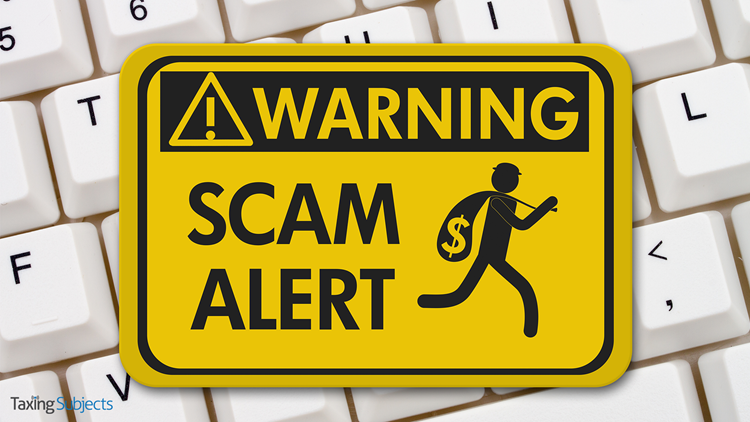Tax Season is Over but Scams Continue

We’ve barely left the filing season for TY2017 behind and scammers are already showing they don’t have any deadlines. A new wave of phone scams, more devious than past attempts, has been unleashed.
More and Better Fakery
As so many phone scams are, this new development is a new twist on an old recipe. The Internal Revenue Service says the scam starts when the crooks call taxpayers, claiming to be from a real local IRS Taxpayer Assistance Center (TAC). The taxpayer’s Caller ID will display the real TAC phone number. The scammers will attempt to trick the taxpayer into paying non-existent tax bills.
If the taxpayer balks, or questions the demand for a “tax payment,” scammers direct the taxpayer to IRS.gov to look up the number of their local TAX office and verify the phone number, which, as we said, has been faked.
The crooks hang up, wait a short time, then call back – this time faking the number of the IRS. After the taxpayer has “verified” the call telephone number, the scammers resume their demand for money, generally requiring payment on a debit card.
Other fake calls aiming to fleece taxpayers spoof phone numbers of local sheriff’s offices, state Departments of Motor Vehicles, federal agencies and others, all in the attempt to convince taxpayers that the call is legitimate.
Know the Signs
As with most scams, the tell-tale “red flags” that indicate a fraud are there. IRS employees at Taxpayer Assistance Centers don’t make calls to taxpayers to demand payment of overdue tax bills. As a rule, the IRS will initiate most contacts with taxpayers by U.S. Postal Service. And the IRS will NEVER limit payment choices.
Granted, there are special, limited circumstances where the IRS will call or visit a home or business to secure a delinquent tax return or delinquent employment tax payment. But even then, the IRS stresses that the taxpayer will generally get several letters (called “Notices”) in the mail before the call or visit takes place.
The IRS and its industry partners on the Security Summit want taxpayers and tax pros to know the IRS does not:
- Demand that you use a specific payment method, such as a prepaid debit card, gift card or wire transfer. The IRS will not ask for your debit or credit card numbers over the phone. If you owe taxes, make payments to the United States Treasury or review IRS.gov/payments for IRS online options.
- Demand that you pay taxes without the opportunity to question or appeal the amount they say you owe. Generally, the IRS will first mail you a bill if you owe any taxes. You should also be advised of your rights as a taxpayer.
- Threaten to bring in local police, immigration officers or other law enforcement to have you arrested for not paying. The IRS also cannot revoke your driver’s license, business licenses, or immigration status. Threats like these are common tactics scam artists use to trick victims into buying into their schemes.
Taxpayers who receive the IRS phone scam or any IRS impersonation scam should report it to the Treasury Inspector General for Tax Administration at its IRS Impersonation Scam Reporting site and to the IRS by emailing phishing@irs.gov with the subject line “IRS Phone Scam.”



